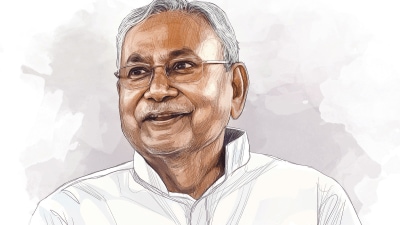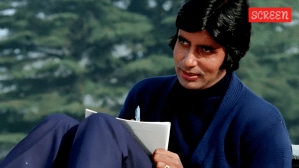India will approach IAEA today to sign n-damages pact
So far,13 countries have signed the CSC but only four countries including the US have ratified it.
In line with its commitment to the United States,India will formally approach the International Atomic Energy Agency (IAEA) on Wednesday to sign the Convention on Supplementary Compensation (CSC) on nuclear damage. If all goes to plan,the signature,sources said,will also take place on Wednesday.
India has been in informal consultations with the IAEA on this for the past few weeks and all technical issues have been clarified. Prime Minister Manmohan Singh gave the green signal from Tokyo on Monday and formal instructions were issued to the Indian mission in Vienna today after informing CCS members and getting the requisite paperwork done in Rashtrapati Bhavan.
Given that the IAEA was shut on Tuesday on account of Austrian National Day,the formal approach will be made tomorrow. So far,13 countries have signed the CSC but only four countries including the US have ratified it. For the CSC to come into force,at least five countries with 400,000 units of minimum combined installed nuclear power capacity should ratify it.
There are three stages to joining the convention signing,ratification and the final entry into force. At present,India is only going to sign into the convention through the depository,which is the IAEA in this case. This stage does not require India to provide any specific documents including a copy of the civil nuclear liability legislation.
Even at the ratification stage,India will only have to provide a declaration along with the letter of accession,which has to state that its national law is in line with provisions of the convention. The final copy of the law will have to be provided only at the time of the entry into force,said sources. However,questions can be raised by member countries at the time of ratification when this declaration is made.
The US has been insisting that India join the CSC as it had committed during the nuclear deal negotiations. Part of the urgency on this has been prompted by Washingtons discomfiture with Indias liability legislation. In particular,the problem is with the clause providing right to recourse to operator against the supplier for providing compensation.
According to the CSC,the operator will be fully responsible for all liability in case of a nuclear incident unless,of course,the damage is caused by war,military conflict or natural disasters.
The convention does state that national law can provide the operator with the right to recourse only if it is expressly provided for by a contract in writing or if the incident results from an act or omission done with an intent to cause damage.
The Indian legislation,however,goes beyond this. It also states that the operator can exercise this right if the nuclear incident has resulted as a consequence of latent or patent defect,supply of sub-standard material,defective equipment or services or from the gross negligence on the part of the supplier of the material,equipment or services.
For the moment,New Delhi is not that concerned about any possible incongruity between its legislation and the CSC because it does not need to enter into this argument just yet. By signing into the CSC before US President Barack Obamas visit,India will be fulfilling one of the key demands placed by Washington to assure its suppliers that any legal action will be in line with norms set out in the CSC.



- 01
- 02
- 03
- 04
- 05



























